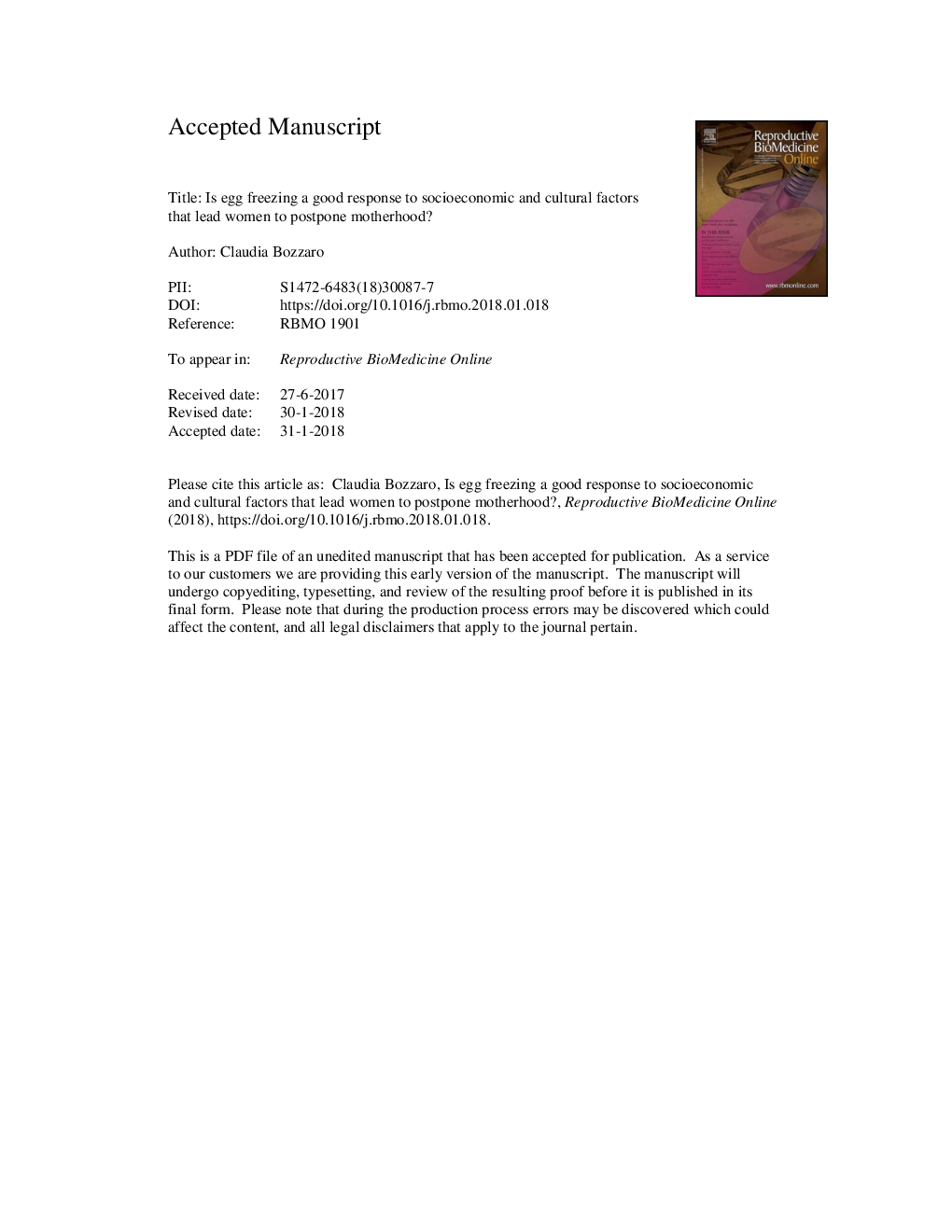| Article ID | Journal | Published Year | Pages | File Type |
|---|---|---|---|---|
| 8783861 | Reproductive BioMedicine Online | 2018 | 35 Pages |
Abstract
In western societies, a growing number of women are currently turning to social egg freezing, a technique that makes it possible to freeze oocytes and thus preserve female reproductive possibilities. The current ethical debate has focused on normative aspects concerning the question of whether social egg freezing empowers women's reproductive autonomy. Due to this narrow focus on autonomy, deeper questions concerning the socio-economic conditions and cultural factors that lead women to delay reproduction, to feel pressured by their biological clock, and thus to consider social egg freezing have not yet received sufficient attention and analysis. The aim of this study was to broaden the ethical debate by focusing on whether social egg freezing is a good response to the socioeconomic and cultural constraints that lead women to postpone motherhood, and therefore whether it can be seen as a means of achieving what in virtue ethics is known as a 'good life'. I will argue that while social egg freezing can be seen as a means to empower women to adapt to current socioeconomic constraints, it is not an adequate response to cultural factors, as these cannot be solved by simply extending a woman's fertility.
Keywords
Related Topics
Health Sciences
Medicine and Dentistry
Obstetrics, Gynecology and Women's Health
Authors
Claudia Bozzaro,
